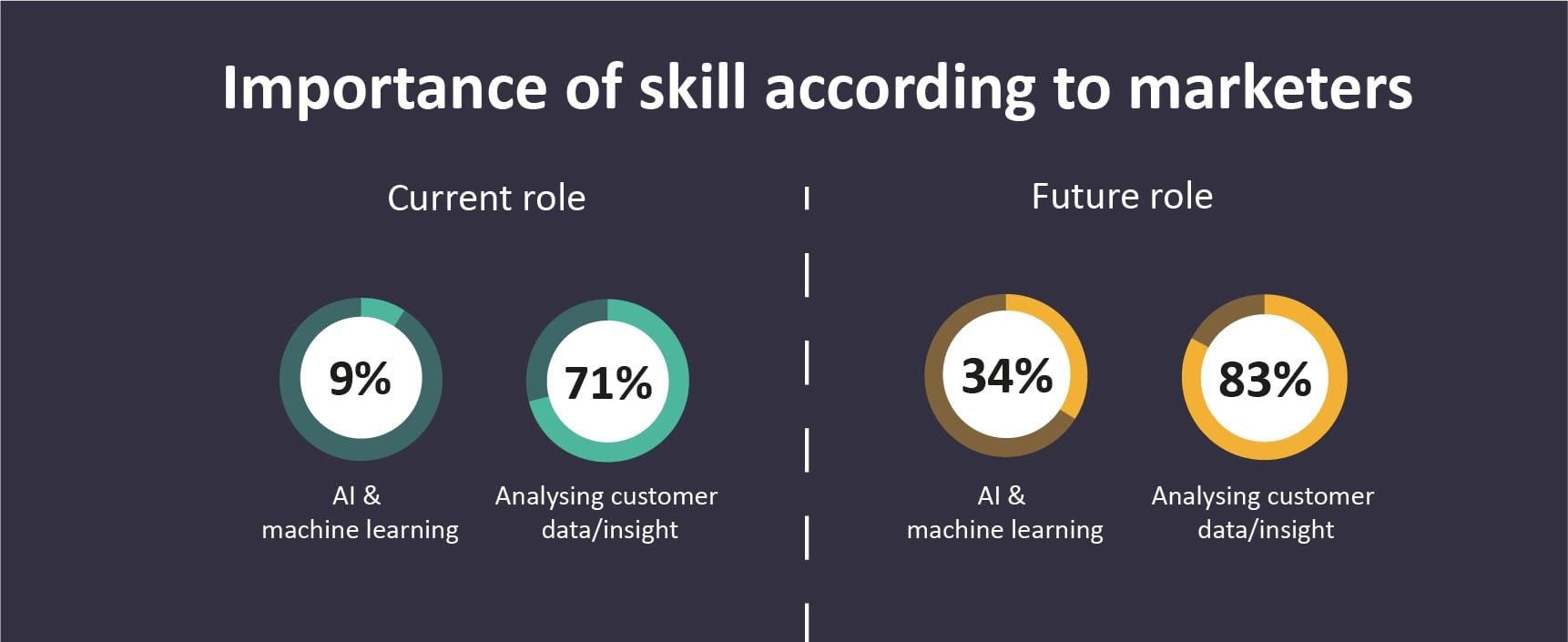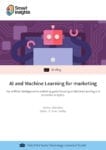87% of marketers state that AI and machine learning are already vital to their organization’s success, yet this has the largest skills gap present in the data and marketing industry. Tim Bond, Head of Insight at the DMA discusses why these skills are essential to the future of intelligent marketing
Data and technology have already transformed the way businesses engage their customers in the 21st Century. The prospect of artificial/augmented intelligence (AI) and machine learning revolutionizes the speed with which we, as marketers, can take action on this insight to offer better, more relevant and engaging content to customers.
Much has been said about AI in recent years, but one thing that continues to be overlooked is the need for marketers who are driven to explore and develop their own skills sets, as well as organizations that embrace a continuous learning environment.
In the not-too-distant future, marketers will need to be equally proficient in analytics, creative thinking and AI integration. Put simply, we will need marketers that can think like data analysts and data analysts who can think like marketers.
The rise of the data-driven economy has already seen a substantial increase in technological investment. But the key skills and competencies to utilize this technology – whether AI or martech – is a critical business challenge. Innovation and shiny new technology for its own sake is not the answer. Marketers must be able to use technology to make them more productive.
There could be a skills shortage in the near future
The future of intelligent marketing will not just be dependent on investing in the latest technological advancements. It will require skilled marketing teams to interpret data, analyze trends and integrate marketing platforms to develop a cohesive marketing strategy. Perhaps even more importantly, it requires business leaders to acknowledge the predicament and drive decisions based on a cohesive strategy.
However, there is a lack of staff with the right skillsets, which could limit how influential and successful AI and machine learning will become. The DMA’s recent research asked marketers to identify the skills and challenges facing their organizations today and their importance in the future. Interestingly, it reveals that AI and machine learning are the most important areas of expertise that organizations must develop staff skills in. The full report will be released in May 2019 as part of the Business Skills Census 2019 report.

Skills in AI and machine learning were found to be available within 45% of organizations, according to marketers. Some 64% stated that these skills would be important to the future success of their respective organizations, revealing a substantial skills gap present within this survey (19%).
Furthermore, 87% state that developing skills in AI and machine learning is vital to their organization’s current success. This highlights the urgency with which businesses will have to address this knowledge gap if they hope to succeed.
In fact, when marketers were asked about their own abilities and the areas they need to develop to progress in their career – as part of the Professional Skills Census 2018 – they again highlighted AI and machine learning as key. This burgeoning set of skills had the biggest gap of all 33 that were analyzed, with a 25% difference between perceived importance between marketers’ current roles and for future career progression.
AI and machine learning are already driving intelligent marketing and data analytics, and their significance will only increase in the future, which is resulting in a rise in jobs requiring these skills. According to a 2017 analysis from jobs site Indeed, the number of roles in AI has risen by 485% in the UK since 2014 and there are twice as many jobs requiring AI and machine learning skills as there are applicants.
AI and machine learning are the future of the data and marketing industry
AI and machine learning systems will only increase the availability and scope of data, so marketers will need to be able to interpret this information effectively. They’ll also need to understand how to communicate this back to management teams and adapt their marketing approach accordingly. In this era of augmented intelligence and machine learning, the plethora of technology at the disposal of marketers and their customers is more powerful than ever. But with powerful technology comes great responsibility.
Marketers will, therefore, be responsible for training the AI that will work on their behalf to create great experiences for customers. A key part of this will be the ability to create the ethical frameworks in which these new technologies operate within. Marketers will no longer be responsible for just their own company’s short-term sales and long-term brand loyalty but to the actions of the AI solutions that they create too. We must ensure that consumers feel safe in the new data-driven economy and that they understand the benefits of data sharing, as well as the vast number of benefits and personalized experiences available to them in exchange.
Final thoughts
AI and machine learning will continue to innovate and revolutionize the data and marketing industry, of that I am sure. However, in order to capitalize on this new technology, we need to address the skills gaps the recent research identifies, as well as a cultural shift within organizations to a belief in the power of learning and development. If marketers in your organization are unable to understand and use the latest technology, you can be sure that one of your competitors does and you’ll simply be left behind.
